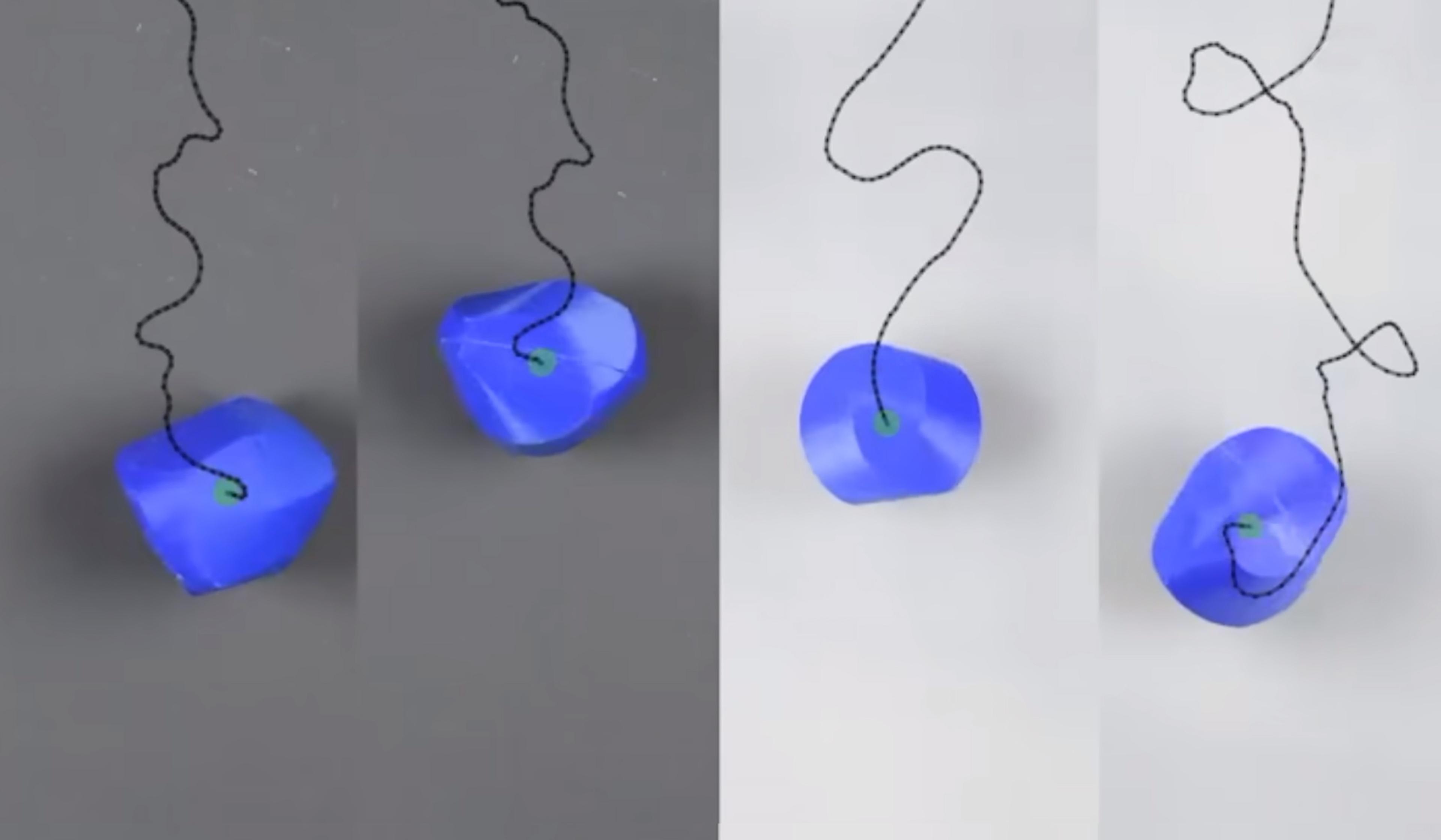Simple, versatile and just four millimetres long, a new ‘soft-bodied’ robot developed at the Max Planck Institute for Intelligent Systems in Stuttgart in Germany is capable of navigating tight and challenging terrain, both on land and in water. The small device is controlled by magnets and looks like little more than a miniature strip of gum, but it can jump, wriggle and swim through just about any small space. Its size and adaptability has its creators hopeful that it can succeed where other small robots have, thus far, mostly failed: performing tasks inside the human body. Read more about the robot in Nature.
The tiny robot that could wriggle its way across the perilous terrain of the human body
Video by Nature

videoMedicine
Could these printable, self-assembling origami robots transform medicine?
3 minutes

videoEngineering
Could this development in biomimetic robotics change terrestrial transport?
3 minutes

videoPhysics
Is it possible to design a shape to roll along any fixed path?
4 minutes

videoBioethics
The mini robots that may show how to ‘programme’ cells for improved performance
4 minutes

videoOceans and water
See what no human eyes have seen before, deep in the sea off Western Australia
5 minutes

videoBiology
An ode to the humble rotifer – one of nature’s simplest and strangest creatures
9 minutes

videoBiology
Creeping through mazes, repelling threats – the slo-mo smarts of slime moulds
5 minutes

videoBiology
The blob with a superpower: cut a flatworm in four pieces and watch it regenerate four-fold
5 minutes

videoBiology
Blend up a hydra, and its cells will coalesce back into a full creature. How?
5 minutes